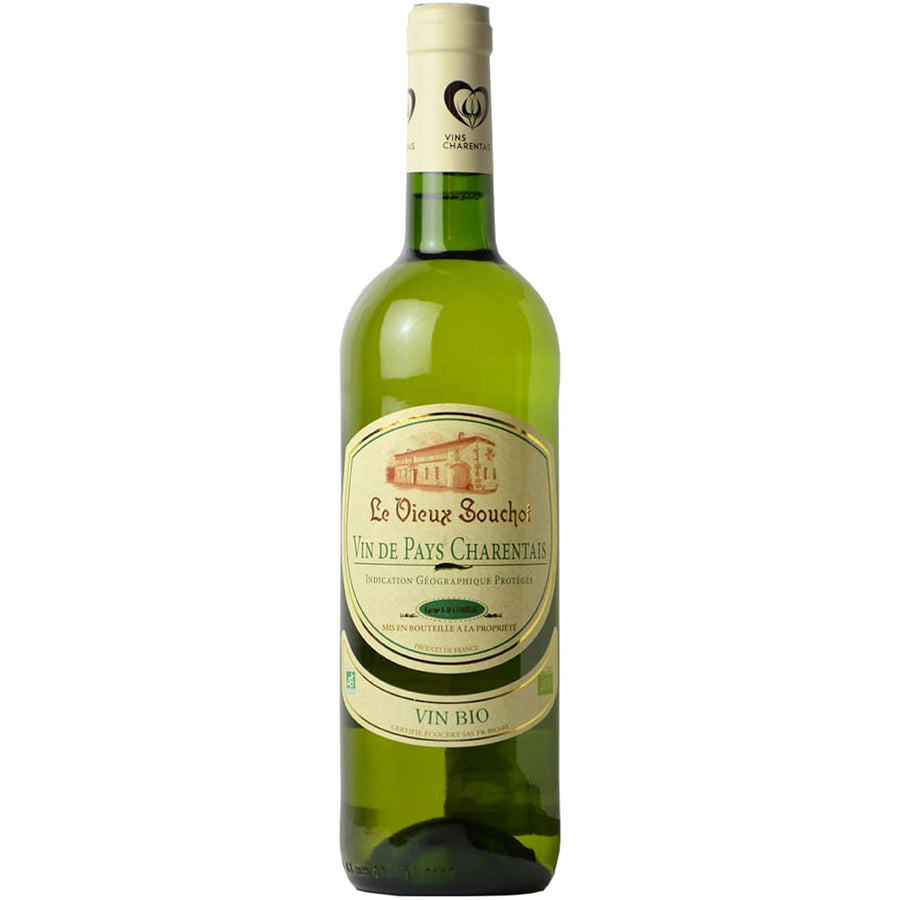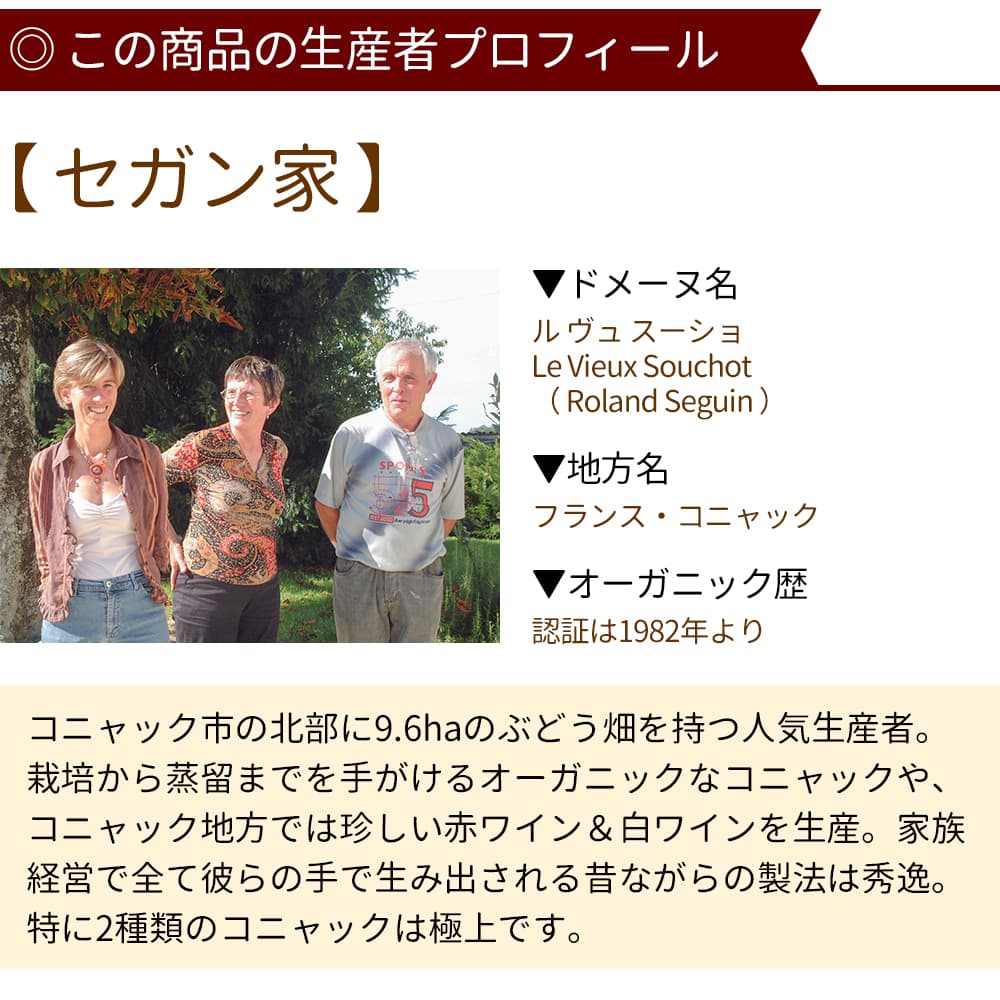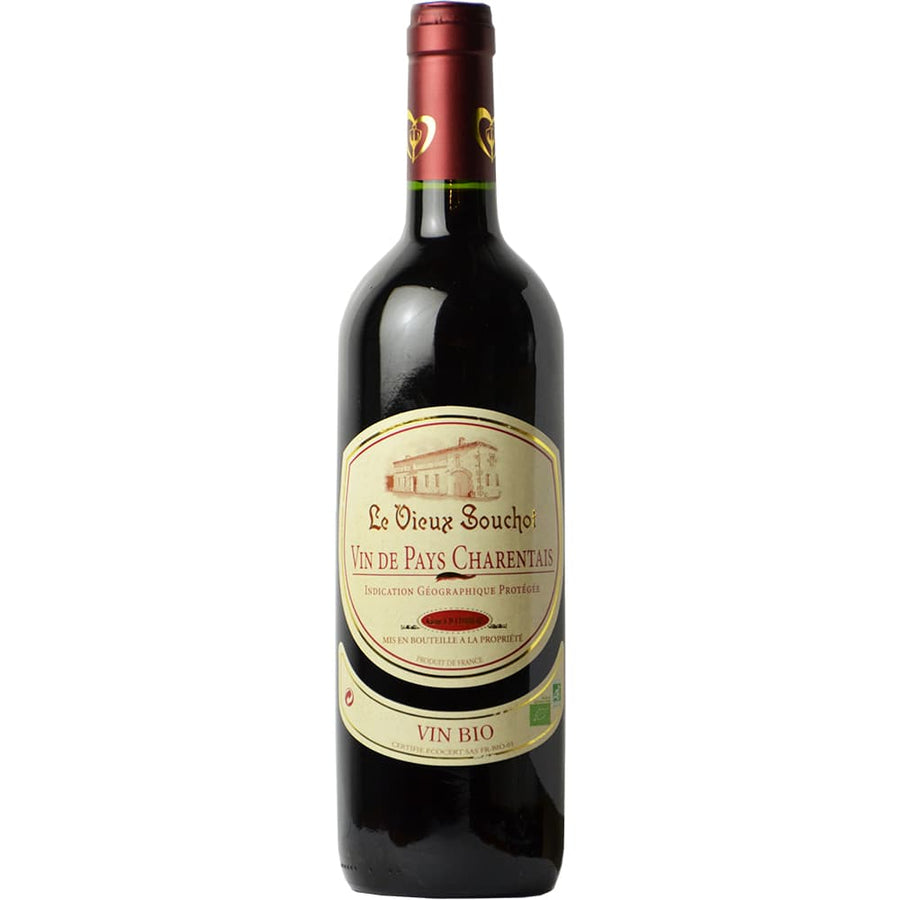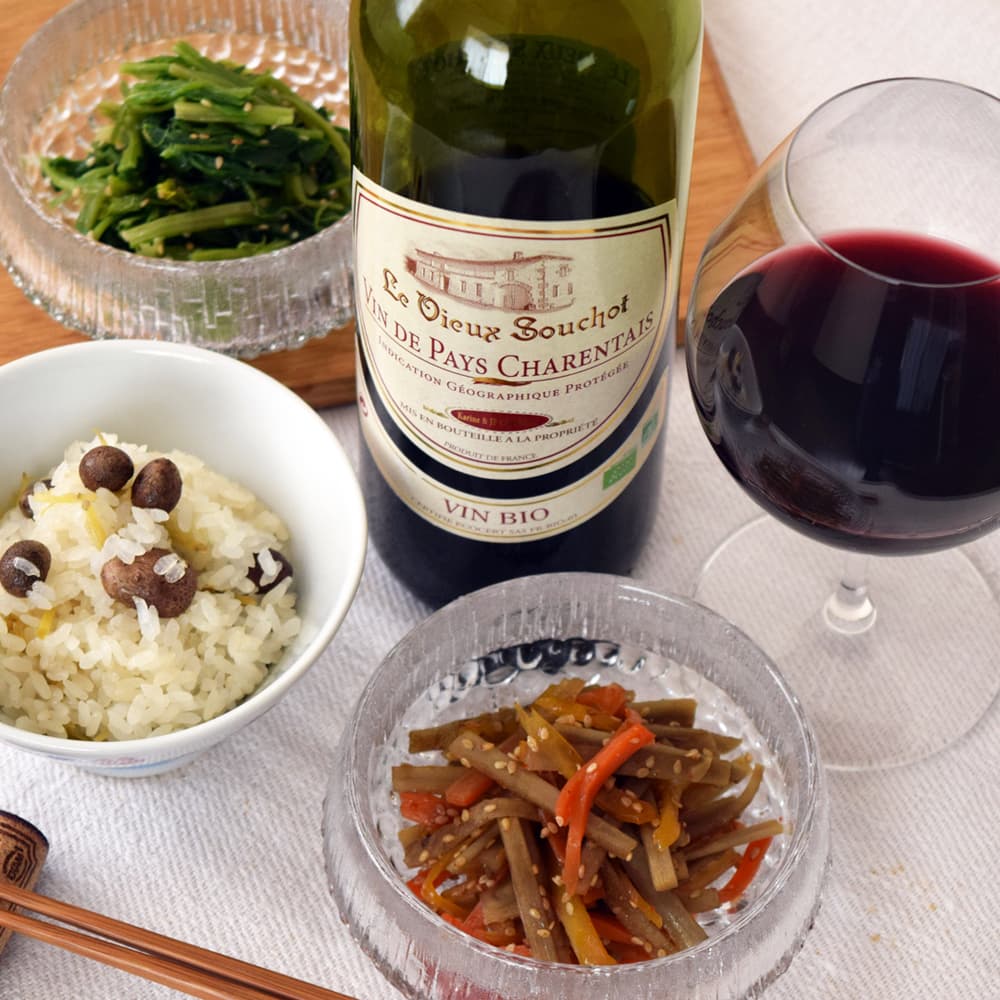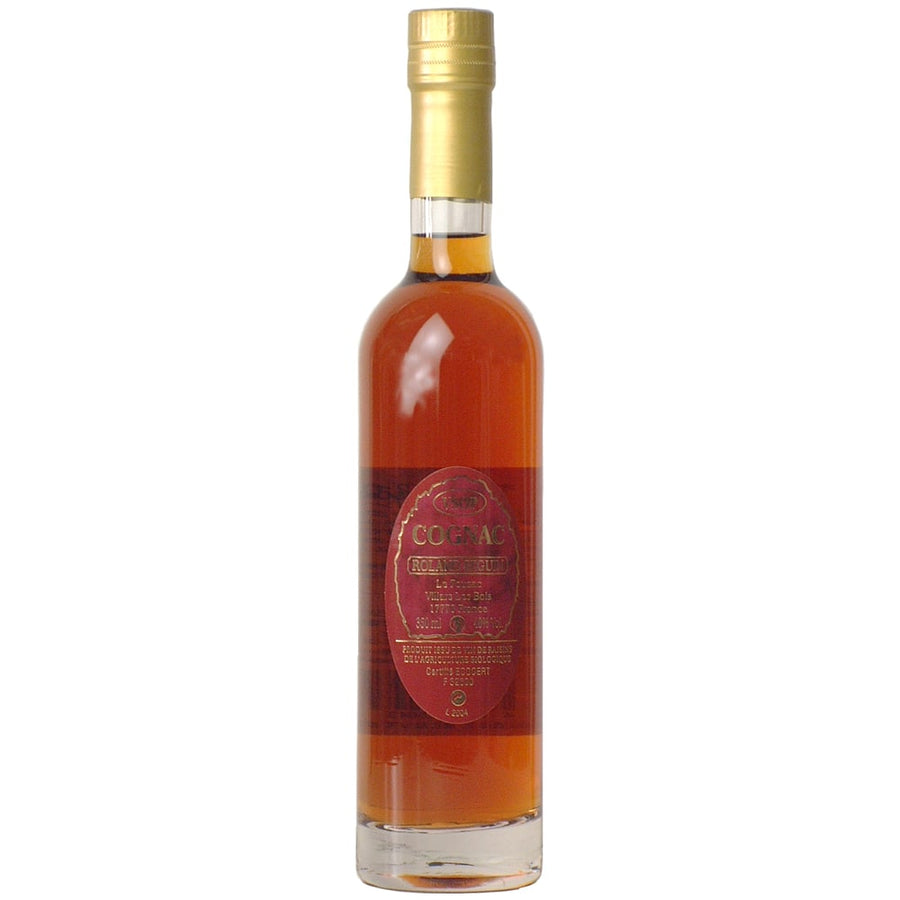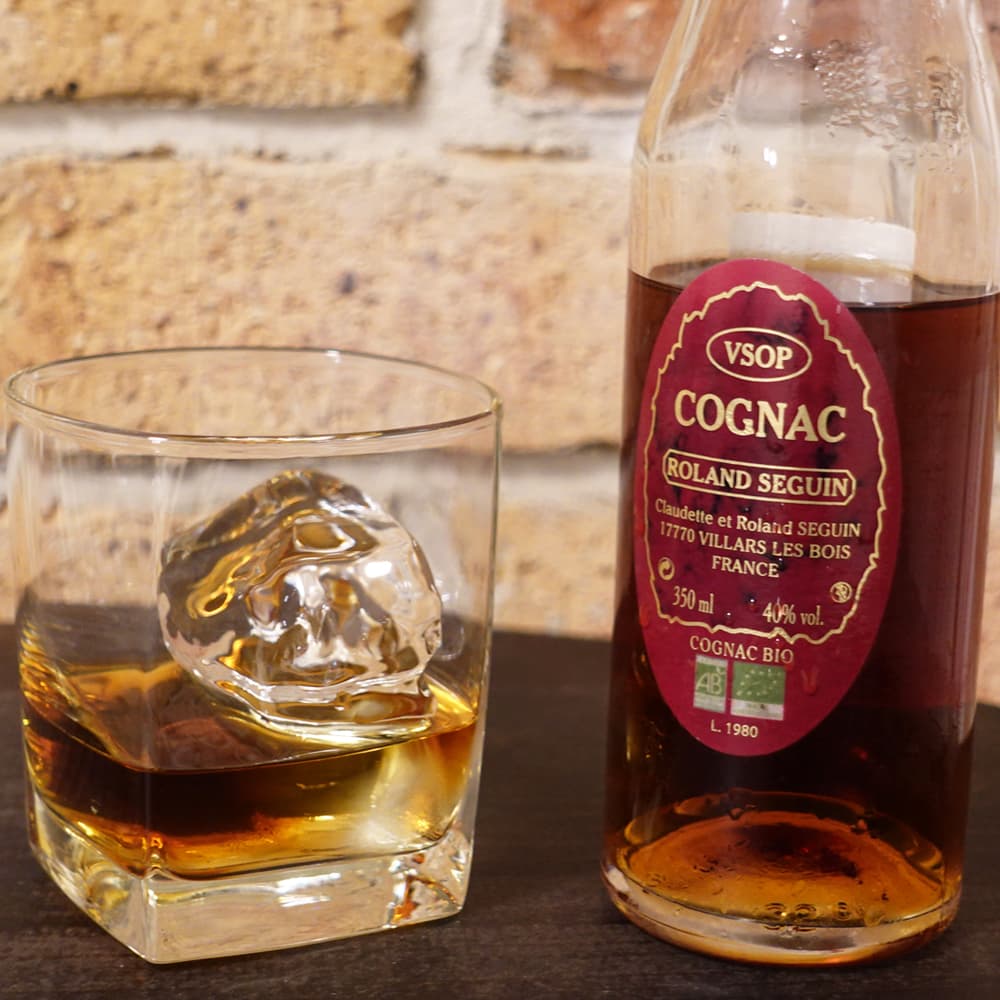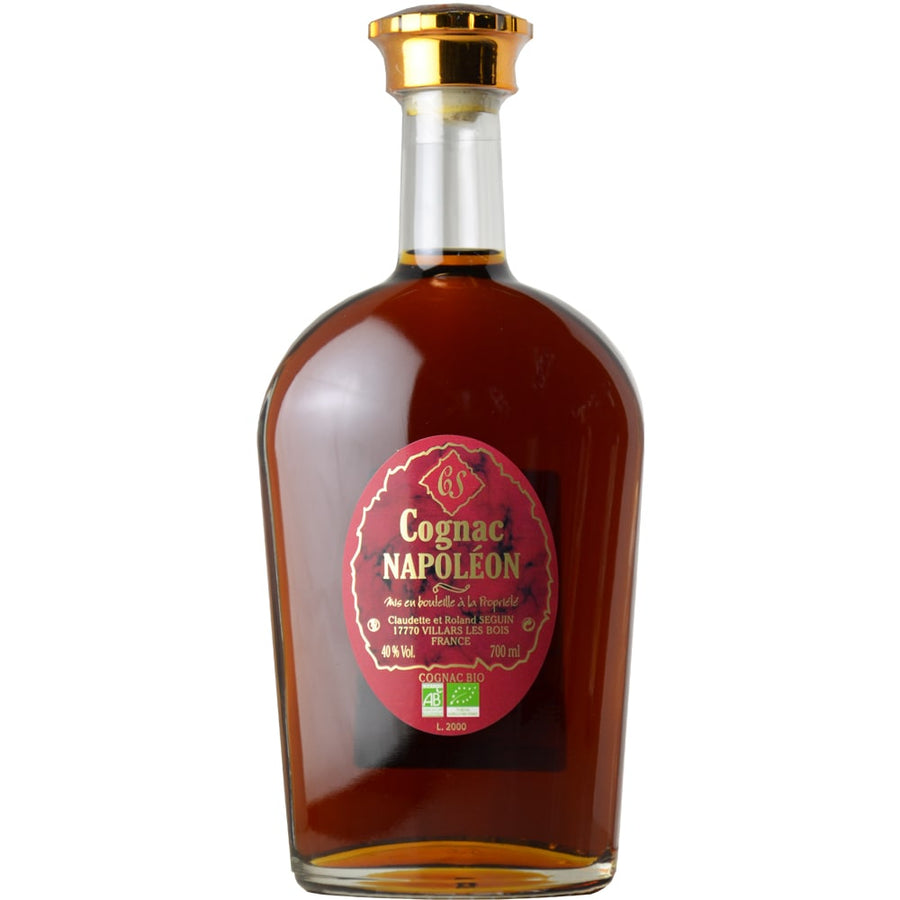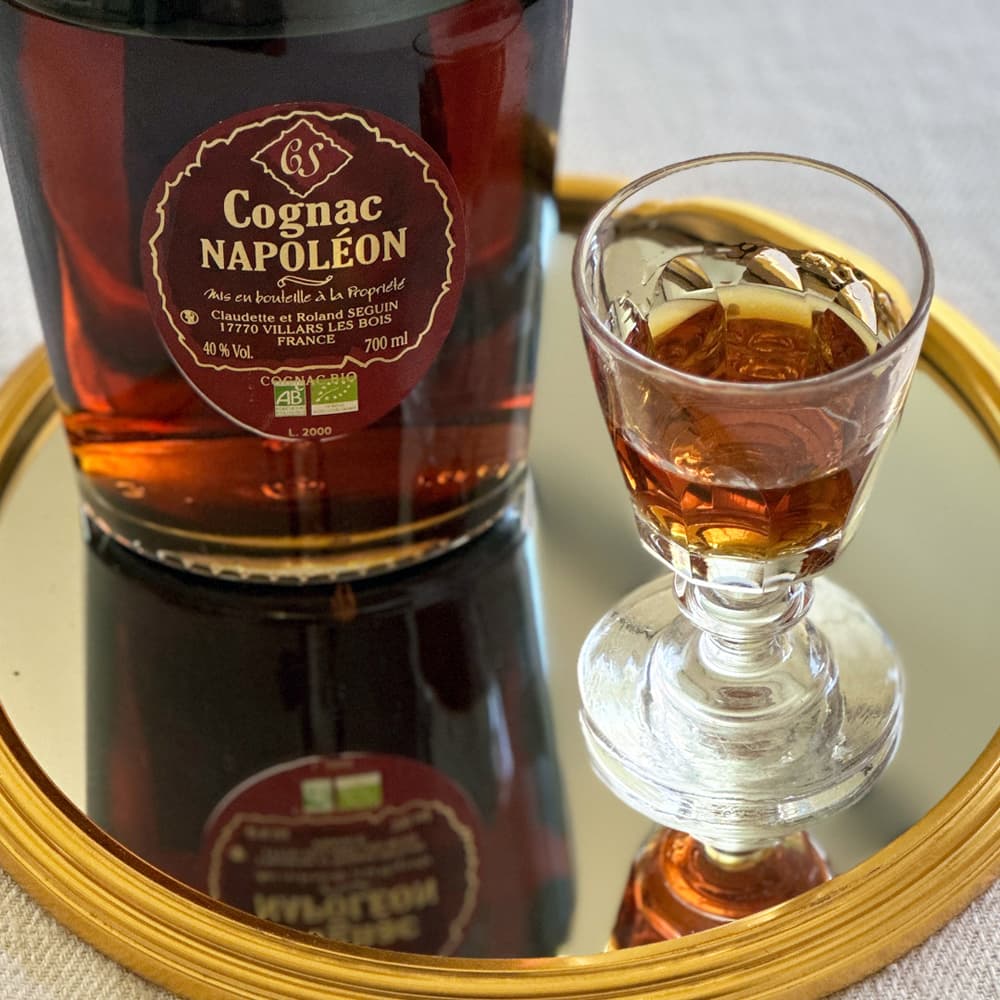The Séguin family
7 products
7 products

The Cognac region is located in the west of France, north of Bordeaux, and is world-famous for the mellow brandy "Cognac" made by distilling white wine. Characterized by calcareous soil and a warm maritime climate, the region is particularly known for cultivating Ugni Blanc, the grape variety used to make Cognac and white wine.
The Seguin family's domain and vineyards are located in the village of Villard-les-Bois, about 17km northwest of the city of Cognac. It is a quiet and peaceful area with almost no slope, and vineyards stretching as far as the eye can see.
The estate manages 5 hectares of vineyards for black grapes and 15 hectares for white grapes, of which 80% is used for cognac.

Organic history: Certified since 1982
During a visit to the Séguin family, we got on the subject of conventional farming, which uses pesticides. Laurent Séguin, who is now retired, is usually a very quiet man, although he does joke around a bit. But at that moment, he spoke with such passion that it was as if he was a completely different person. I will never forget how he spoke about how dangerous pesticides are, and how their use has a huge impact on the water, the earth, and the environment itself.
The Seguin family has been farming for generations, and they decided to get organic certification because they thought about nature and their customers, but when you see Laurent making cognac and wine, you can see his belief that nothing extra is necessary for the simple act of respecting nature and delivering products that come from that nature to his customers.
"The grapes turn out differently each year, so it's impossible for the resulting wine or cognac to taste the same every year, right? Why does it need to be the same?" answers Laurent, a true organic person through and through.
This attitude has been passed down to their daughter Karin, who has taken over the business and continues to cherish and build on the work that her parents have done.

The soil is calcareous, with clay and sandy parts. The area is flat and has a warm Atlantic coastal climate, but in recent years it has been affected by climate change, and there have been years when it has suffered damage from tornadoes.
To control weeds, they till the soil with a tractor as necessary. The soil is much fluffier than the neighboring fields.
Pre-order item
Soft armchair
$420.00
Select variant
Select purchase option


